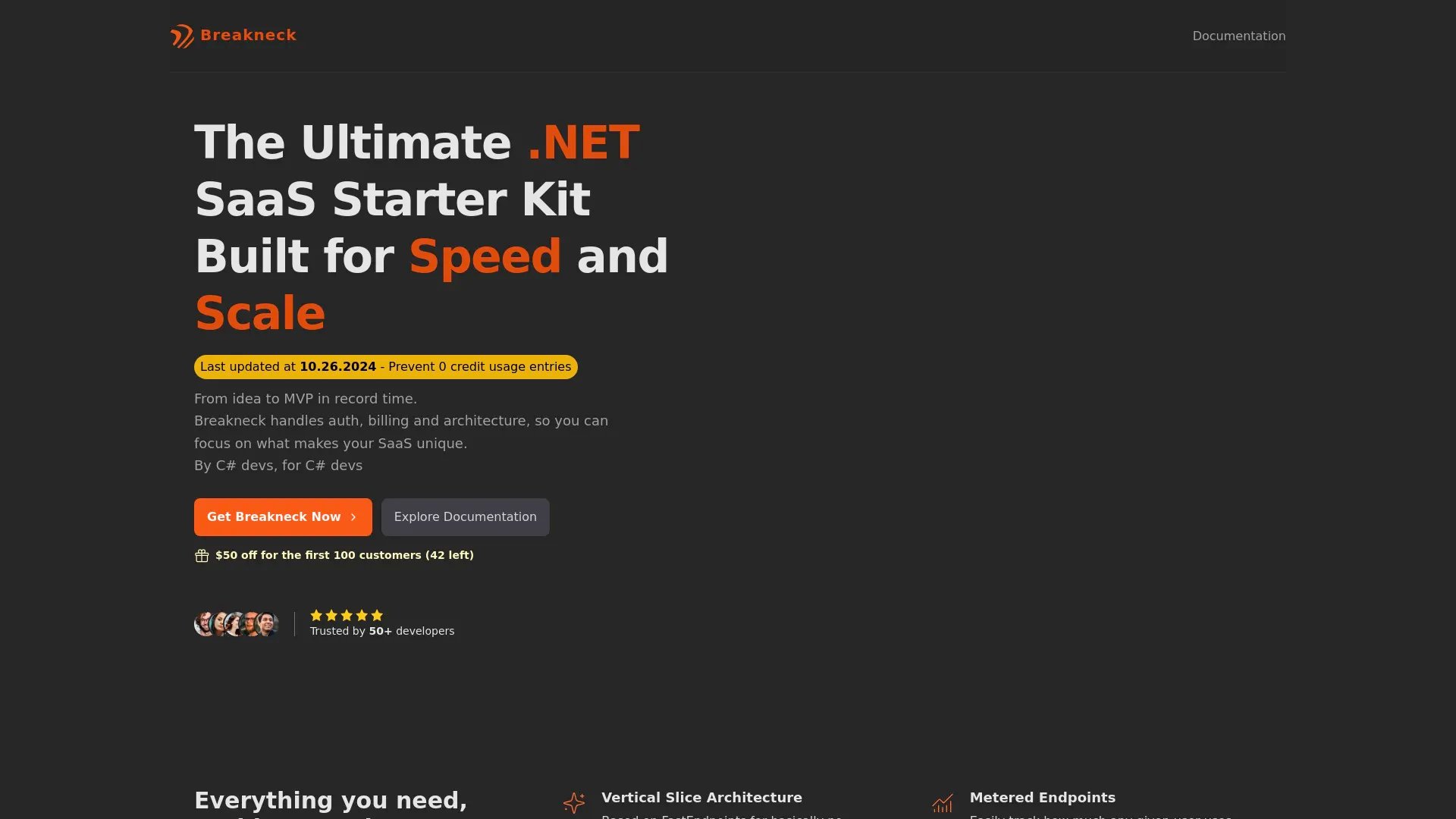
Nano ASP.NET SaaS Boilerplate
A clean architecture ASP.NET multi-tenant API with Vue, React and Razor Pages UI for building SaaS applications.
Features:
Explore 3 boilerplates in this collection. Find the perfect starting point for your next project.

A clean architecture ASP.NET multi-tenant API with Vue, React and Razor Pages UI for building SaaS applications.
Features:

The Ultimate .NET SaaS Starter Kit Built for Speed and Scale
Features:

SaaS Codebase on .NET with Vue, React, Svelte and Tailwind CSS
Features:
C# brings powerful language-level features like strong typing, modern async patterns, and a mature ecosystem to SaaS development. Our C# boilerplates leverage the language's unique strengths—from its runtime characteristics to its package management—providing optimized starter kits that follow C#'s idioms and best practices.
C# boilerplates are architected around the language's runtime model and package ecosystem. They implement C#-specific patterns for concurrent operations, memory management, and error handling. The codebase leverages C#'s type system for compile-time safety, uses native package managers for dependency management, and includes language-optimized build toolchains. This foundation ensures your application follows C# conventions while maximizing performance.
Browse our collection of 3 C# boilerplates to find the perfect starting point for your next SaaS project. Each boilerplate has been carefully reviewed to ensure quality, security, and production-readiness.
C# excels in SaaS development due to its robust ecosystem, strong typing capabilities, and excellent library support. C# boilerplates leverage language-specific features to provide type-safe database queries, efficient API routing, and optimized runtime performance. The language's maturity means you get battle-tested packages for authentication, payment processing, and background jobs that integrate seamlessly.
C# boilerplates include the language's most popular and production-proven tools. This typically includes testing frameworks, linters, formatters, build tools, and package managers specific to C#. You'll get pre-configured toolchains that enforce best practices, automated testing pipelines, and development environments optimized for C# development workflows.
C# scales through proven architectural patterns and language-optimized strategies. The boilerplates implement C#-specific scaling techniques including efficient memory management, concurrent processing, and optimized compilation. You get patterns for horizontal scaling, caching strategies, and database connection pooling tailored to C#'s runtime characteristics.
If you're already familiar with C#, you can start building immediately. The boilerplates use idiomatic C# code and follow community conventions, making them easy to understand and extend. New to C#? Expect 2-4 weeks to become comfortable with the syntax and ecosystem, but the boilerplate's structure and documentation will accelerate your learning significantly.
C# boilerplates specify exact version requirements to ensure compatibility. Most target the latest stable C# release with long-term support, ensuring security updates and community support for years. Version upgrade paths are documented, and the codebases use stable APIs that minimize breaking changes during updates.